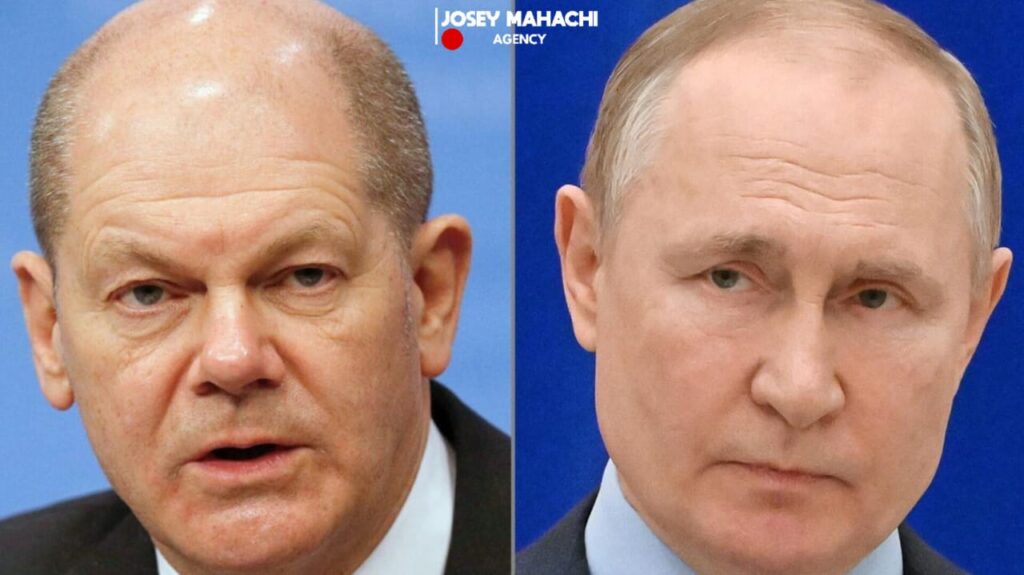By: Lloyd Mahachi
German Chancellor Olaf Scholz and Russian President Vladimir Putin have spoken directly for the first time since late 2022, in a phone call initiated by the German side. The call lasted around an hour and focused on various aspects of the situation around Ukraine. This marks a critical moment in Germany-Russia relations amid the ongoing conflict in Ukraine, which intensified with Russia’s controversial activities. The call’s significance is heightened by its timing, coming shortly after Donald Trump’s US election win, which may signal a shift in Washington’s stance on the conflict.
Scholz condemned Russia’s war of aggression against Ukraine, emphasizing the devastating impact it has had on the country and its people for over 1,000 days. He urged Putin to withdraw Russian troops from Ukraine and pressed for serious negotiations with Ukraine to achieve a “just and lasting peace.” The German leader also reassured Ukraine’s President Volodymyr Zelenskyy of Germany’s unwavering support in the defensive battle against Russia. Scholz’s stance on Ukraine’s sovereignty and territorial integrity remains firm, reflecting Germany’s commitment to upholding international law and human rights.
The call comes at a pivotal moment in international diplomacy, with global leaders navigating complex geopolitical dynamics. Scholz and Trump held a call on Sunday, with Scholz expressing his impression that Trump has more nuanced positions than assumed. However, Zelenskyy’s office has expressed skepticism about the effectiveness of Scholz’s call with Putin, suggesting it would only reduce Putin’s isolation and prolong the war. Critics argue that engaging with Putin may legitimize Russia’s actions, while others see it as a necessary step towards finding a peaceful resolution.
Zelenskyy himself stated that Putin does not want real peace but rather a break, and that talking to him would allow Putin to repeat his lies and maintain the status quo. Despite this, Zelenskyy believes the war will “end sooner” under Trump’s administration, stressing the importance of achieving “fair peace” for Ukraine. The call between Scholz and Putin marks a significant development in the ongoing conflict, with Berlin informing NATO allies of the details and reaffirming EU and NATO’s continued backing for Ukraine. As the international community continues to grapple with the crisis, diplomatic efforts like Scholz’s call with Putin underscore the need for sustained engagement and cooperation.
The implications of Scholz’s call with Putin extend beyond Germany and Russia, influencing the broader European and global response to the conflict. As tensions persist, leaders must balance competing interests and priorities, weighing the potential benefits of dialogue against the risks of legitimizing aggressive actions. The path forward remains uncertain, but one thing is clear: finding a lasting resolution to the Ukraine conflict will require sustained diplomacy, cooperation, and commitment to upholding international principles.
Editor: Josephine Mahachi

